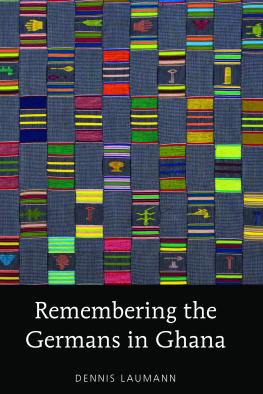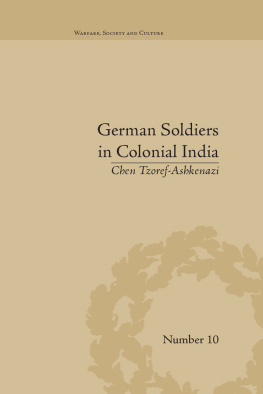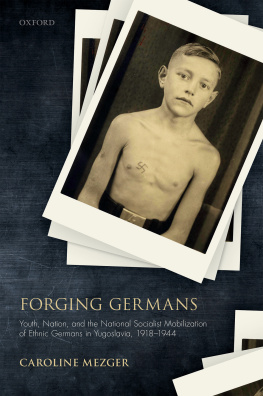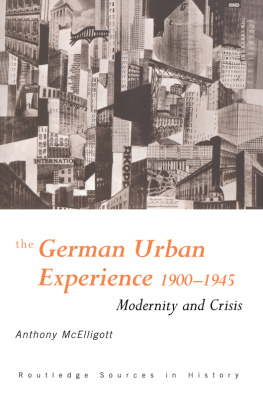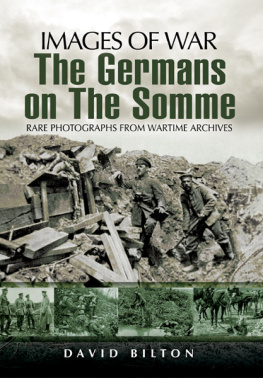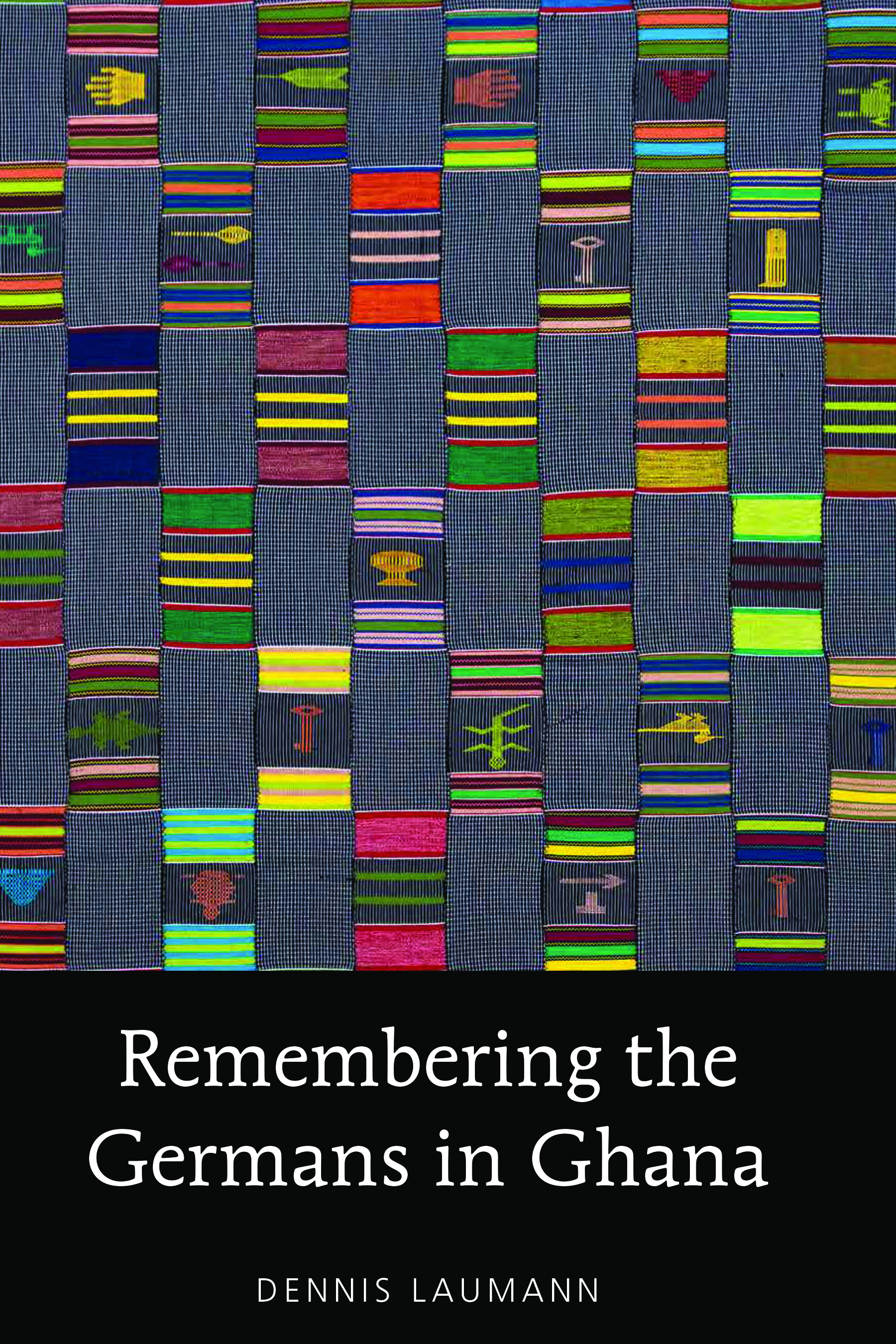chapter
Many individuals, in different ways, and over the years, contributed to making this book possible, and I apologize if I neglect to acknowledge anyone who somehow influenced this work. First and foremost, I am profoundly thankful to the oral historians in the central Volta Region who allowed my co-researchers and me to interview them.
As an undergraduate student at Binghamton University, I benefited from the wisdom and kindness of my advisors Akbar Muhammad and the late Ali A. Mazrui. At the University of California, Los Angeles (UCLA), I was fortunate to be advised by the great historians Christopher Ehret, the late Boniface I. Obichere, and above all my mentor Merrick Posnansky, as well as the anthropologist Anna Simons, as I carried out my research and wrote my dissertation. Many graduate school friends helped shape the ways I think and write about African history, especially Nwando Achebe, Agbenyega Adedze, Gibril R. Cole, T.J. Desch-Obi, Mary Dillard, Catherine Cymone Fourshey, Rhonda Gonzales, L. Lloys Frates, Michael R. Mahoney, Kendahl Radcliffe, Jasamin Rotsam-Kolanyi, Bridget A. Teboh, and Susanna Wing.
My research in Ghana would not have been possible without the guidance and companionship of my very good friend Kofi Baku, a historian at the University of Ghana. I am particularly thankful to my coresearchers, Cornelius Adedze, Joseph Montana Asamoah, Divine Dzokoto, and Gavivina Tamakloe, who helped arrange and conduct the interviews that generated the oral history examined in this book. I also thank Vivian Asempa and Olivia Baku who transcribed many of these interviews.
In Germany and Togo, on innumerable occasions, Peter Sebald generously shared his time, knowledge, and materials with me as well as guided my research and writing. I am grateful to him and Sybille Senger for welcoming me into their home after long days at the archives in Berlin.
At The University of Memphis, my former chair, Janann Sherman, was very supportive of my research and Anne Reef, then a graduate student, expertly edited a draft of the introduction.
I am thankful to the scholars who offered valuable feedback on previous versions of this monograph and related publications and conference presentations, including: Emmanuel K. Akyeampong, Lynne Brydon, Sandra E. Greene, Stephan F. Miescher, David Owusu-Ansah, Paul Nugent, Richard Rathbone, Larry Yarak, and Andrew Zimmerman.
I appreciate the encouragement and guidance of several editors at Peter Lang, especially Meagan Simpson, Jackie Pavlovic, and Phyllis Korper. Petra Gebeschus at the Staatbibliothek zu Berlin kindly granted permission for reproduction of archival photos and Onno Brouwer, Director of the University of Wisconsin-Madison Cartographic Lab, created the precise maps featured in this book.
My wife, Rebecca, has been with me during every stage of this project, providing love, encouragement, and advice. I am eternally grateful to her and to our awesome son, Max, whose affection and enthusiasm inspire me.
The research for this book was possible thanks to funding from, in chronological order: the University of California, Berkeley Center for German and European Studies; the UCLA Department of History; the James S. Coleman African Studies Center at UCLA; the International Institute of Education, which awarded me a United States Fulbright Grant; the Department of History at The University of Memphis; and the College of Arts and Sciences at The University of Memphis, which awarded me a Faculty Research Grant. xvi | xvii xvii | xviii
chapter
This book originated in research I began over two decades ago as an undergraduate student. During my senior year, I wrote an honors thesis on German administration and African resistance in Germanys colonies of Togoland in West Africa and Tanganyika in East Africa. As I worked my way through the secondary sources, mostly written by non-Africans and often sympathetic to German rule, I thought it would be important and fascinating to solicit African perspectives on German colonial rule through oral history work. As a student, I embraced Marxist theory and practiceand I still doso I considered it a duty to set the record straight (in response to the colonial apologists of the Hoover Institution, for example) and present African voices (to balance the Eurocentrism of most of the existing literature) as a small contribution to the seemingly never-ending struggle against imperialism and racism. In my first years of graduate school, I decided to focus on German Togoland so I began the task of more extensively reading the literature on the colony; familiarizing myself with archives in Ghana, Togo, and Germany; and spending time in the Central Volta Region of Ghanaselected as the site of my research for a variety of scholarly and practical reasonsto meet people, learn about its history and cultures, and generally get a feel for the place.
It was during my predissertation research that I realized my broad assumptions about what the oral history would tell us was contradicted by reality: many Ghanaians in the Central Volta Region spoke about the German colonial period in mostly positive ways. Remembering the Germans in Ghana attempts to explain that reality. It addresses the following questions: What is the oral history of the German occupation of the central Volta Region of Ghana? How did it develop in the decades after the Germans left? What factors shape the way it is maintained? And, what larger lessons can we draw from examining this oral history?
Objectivity demands that historians respect the voices and opinions of the people about whose history we write. Clearly, as a Marxist, it was not my intention nor my desire to produce a book about what might be perceived as colonial nostalgia but, as a historian of Africa, particularly one of European origin, it is my responsibility not to denigrate or dismiss the interpretations of the oral historians who kindly shared their time and expertise with me. Although I may not agree with their perspectives on the past, my primary duty is to present their oral history and, secondarily, contextualize it based on my understanding of the larger history.
The book tackles the aforementioned questions and fulfills these duties in a mostly chronological narrative: in the first chapter, I explain my research methodology and I discuss related theoretical issues; in the second chapter, I offer an overview of the early history and cultures of the central Volta Region; a history of German colonial rule in the central Volta Region, based on written accounts, is presented in the third chapter while the oral history on the same subject constitutes chapter four; in the fifth chapter, the post-German colonial period is examined, with a focus on the Ewe unification and Togoland reunification movements; the sixth and final chapter analyzes how and why memories of the Germans are maintained today by highlighting the role of German Scholars, the dynamics of public performance, the influence of physical remains and reminders of the Germans, and the research process itself. The conclusion sums up the books arguments and its wider implications.
In addition to presenting the case for more deliberate and extensive use of oral history in reconstructing the African colonial past, and providing a methodology for its collection and analysis, this book is intended to make important contributions to the existing literature on the history of the Ewe and neighboring peoples, the German Togoland colony, and German colonialism in general. xviii | 1

